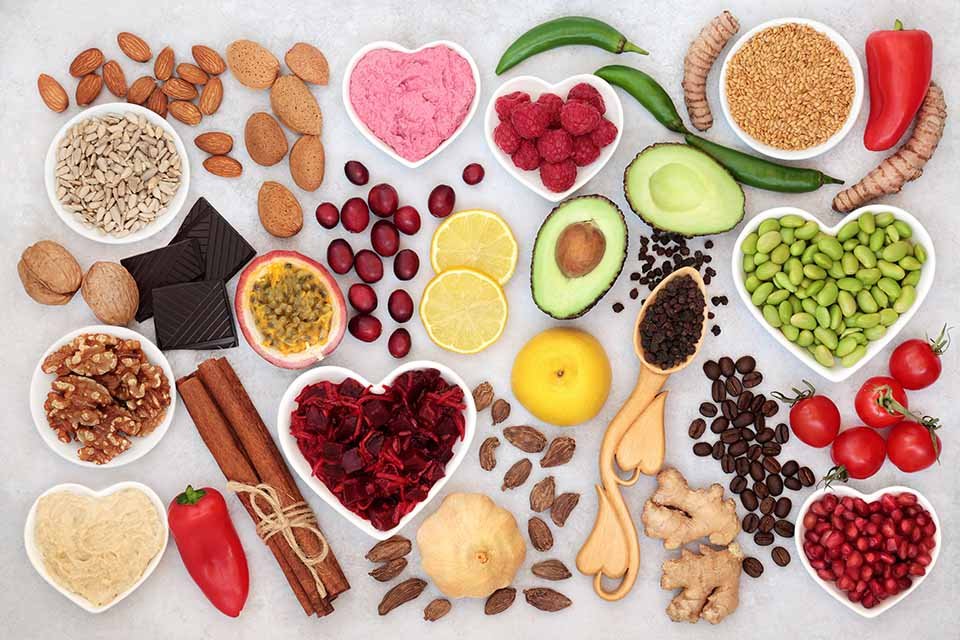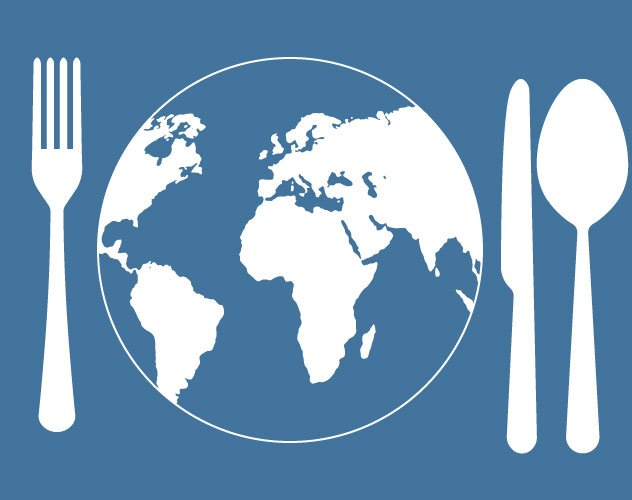Introduction to Food Ethics
Food ethics is a multidisciplinary field that scrutinizes the moral ramifications entwined with the production, distribution, and consumption of food. It contemplates questions that span the environmental, social, and ethical domains, seeking to illuminate the broader impact of the choices we make daily about what we eat. In recent years, the importance of food ethics has surged as societies become increasingly cognizant of sustainability, animal welfare, and equitable food distribution.
Understanding food ethics is crucial because our dietary decisions hold profound consequences for the environment, societal structures, and the welfare of living beings. For example, industrial farming practices often lead to environmental degradation through deforestation, water pollution, and soil erosion. Moreover, labor practices in the food industry can bring up significant social justice issues, with many workers facing poor conditions and unfair wages.
By exploring food ethics, individuals and communities can become more informed about the hidden costs of their food, prompting steps toward more ethical and sustainable choices. This blog post will delve into various facets of food ethics, including:
The environmental impact of food production
The ethical considerations surrounding animal welfare
The social justice issues linked to labor in the food industry
The role of policy and regulation in promoting ethical food systems
Each of these areas highlights critical aspects of the relationship between our food choices and their wider repercussions. As we navigate through these topics, it will become evident that mindful eating extends beyond personal health, embracing a commitment to the planet and its inhabitants. Through an understanding of food ethics, we can endeavor to make choices that honor the interconnectedness of our global food ecosystem.
Historical Context and Evolution of Food Ethics
Understanding the historical context and evolution of food ethics provides valuable insight into how humanity’s relationship with food has transformed over the centuries. In ancient times, agricultural practices were predominantly subsistence-based, focusing on sustaining local communities with minimal surplus. The ethical considerations were intertwined with cultural and religious beliefs, with many societies adhering to sacred rituals and prohibitions surrounding what and when to eat.
As civilizations progressed, agricultural advancements such as crop rotation and selective breeding led to more efficient food production methods. The Middle Ages saw the establishment of feudal systems, where land use and food distribution became more hierarchical, influencing societal norms and ethical questions regarding food distribution and justice. The influence of religious doctrines, such as kosher and halal dietary laws, continued to shape ethical perspectives on food consumption and preparation.
The Industrial Revolution marked a significant shift with the advent of mechanized farming and food processing technologies, leading to mass production and global trade networks. This period introduced ethical dilemmas related to labor conditions, environmental degradation, and animal welfare, as food became a commodity rather than a subsistence necessity. The rise of scientific understanding during this era also began informing public discourse on nutrition and health, adding a new dimension to ethical considerations.
In the 20th and 21st centuries, ethical concerns in food production have been further amplified by the emergence of industrialized food systems and global supply chains. Critical milestones include the development of organic and sustainable farming practices, the advocacy for fair trade to support equitable labor relations, and the growing awareness of the environmental impact of food choices, such as carbon footprints and biodiversity loss.
Cultural and religious influences continue to play a pivotal role, now complemented by scientific research and social movements advocating for more ethical food practices. This historical journey illustrates the complexity and evolving nature of food ethics, underscoring the continuous need to balance production efficiency, social justice, and environmental sustainability in our modern food systems.
Environmental Impact of Food Production
The process of food production significantly impacts our planet, encompassing a range of environmental issues such as deforestation, greenhouse gas emissions, water usage, and soil degradation. These consequences arise from conventional industrial farming methods that prioritize high yields and profitability often at the expense of ecological balance. Deforestation, driven by the persistent demand for agricultural land, contributes to the loss of biodiversity and natural habitats. This practice not only displaces wildlife but also reduces carbon sequestration, leading to increased atmospheric carbon dioxide levels.
Greenhouse gas emissions from the agricultural sector primarily stem from livestock production and the extensive use of synthetic fertilizers. Livestock farming generates substantial quantities of methane, a potent greenhouse gas, while fertilizer application results in nitrous oxide emissions. Together, these gases significantly enhance global warming, exacerbating climate change. Alongside air quality issues, conventional farming consumes vast amounts of water, stressing freshwater resources. Irrigated agriculture accounts for approximately 70% of the world’s freshwater withdrawals, posing threats to aquatic ecosystems and jeopardizing water availability for human consumption and other sectors.
Moreover, industrial agriculture frequently leads to soil degradation. Practices like monoculture cropping and excessive tillage diminish soil fertility and increase erosion rates, consequently harming long-term agricultural productivity. Conversely, alternative farming practices such as organic farming, permaculture, and sustainable agriculture offer more environmentally conscious approaches. Organic farming emphasizes the use of natural fertilizers and pest control methods, substantially reducing chemical runoff and enhancing soil health. Permaculture integrates elements of natural ecosystems into farming, fostering biodiversity and promoting ecological resilience.
The concept of sustainable agriculture emerges as a crucial strategy to minimize environmental damage associated with food production. This approach focuses on harmonizing farming practices with ecological principles, ensuring that resources are used efficiently while preserving biodiversity and maintaining soil fertility. Sustainable agriculture practices include crop rotation, agroforestry, and conservation tillage, which collectively contribute to reducing carbon footprint, conserving water, and preventing soil erosion. Embracing sustainable agriculture practices is imperative for the global effort to mitigate the detrimental environmental impact of food production, thereby safeguarding our planet for future generations.
Ethical Considerations in Animal Farming
The ethical implications of animal farming have been at the forefront of discussions surrounding food production for years. Central to this debate are concerns regarding animal welfare, particularly within the context of industrial farming practices, often referred to as factory farming. In these large-scale facilities, animals are frequently subjected to cramped living conditions, inadequate nutrition, and limited access to natural environments. Such conditions not only significantly impair the quality of life for these animals but also raise profound ethical questions about humane treatment.
Factory farming prioritizes high output and efficiency, often at the expense of animal welfare. Chickens and pigs, for instance, are sometimes kept in confined spaces where they are unable to exhibit natural behaviors, leading to physical and psychological distress. Cows may be subjected to practices like the separation of calves from their mothers shortly after birth in dairy farming, or intensive breeding for rapid growth in beef production. These practices contribute to the inhumane treatment of livestock, sparking ethical concerns and increasing consumer demand for more humane alternatives.
Alternatives to traditional animal farming are gaining traction, aiming to address these ethical issues while meeting dietary needs. Plant-based diets offer one solution, significantly reducing reliance on animal farms. Innovations in food technology have introduced lab-grown or cultured meat, promising to replicate the taste and texture of conventionally farmed meat without involving the rearing and slaughtering of animals. Lab-grown meat is produced through cellular agriculture, where animal cells are cultured in a controlled environment to develop tissues similar to those found in traditional meat products.
As awareness of the ethical and environmental impact of food choices increases, these alternatives provide viable options for reducing animal suffering. Addressing the ethical considerations in animal farming through such innovative practices not only promotes the humane treatment of animals but also aligns with a growing movement towards more sustainable and ethical food systems.
Social and Economic Impact of Food Choices
Our food choices carry significant social and economic implications that extend beyond the individual level, deeply influencing labor conditions, fair trade, and food security. The demand for certain products often dictates labor practices in various regions. For instance, the preference for inexpensive produce may perpetuate inadequate labor conditions, including low wages and poor working environments. Conversely, opting for fair trade products promotes ethical labor standards and ensures that workers receive fair compensation and better working conditions.
Food security is another critical aspect influenced by our dietary choices. In regions where food systems are fragile, the import and export dynamics dictated by global demand can drastically affect local access to nutritious food. The proliferation of monoculture farming for export can lead to the depletion of local food resources, thus exacerbating food insecurity. Conversely, supporting local agricultural practices helps sustain regional food systems, fostering resilience against global market fluctuations.
Healthy food access is another pressing issue, often dictated by socio-economic status. In many urban areas, food deserts—parts of the country devoid of fresh fruit, vegetables, and other healthful whole foods—are prevalent. These regions are usually found in impoverished areas, where the motivation for profit often outweighs the need for providing healthy food choices. Addressing this disparity requires a concerted effort to prioritize community-based food systems that support equitable distribution of nutritious food.
The ethics of our food choices play a pivotal role in promoting social justice. By being conscientious about where our food comes from and how it is produced, consumers can contribute to more equitable food distribution, helping to alleviate global poverty. The concept of food ethics compels us to consider not only our health but also the overall impact on communities worldwide. Ultimately, mindful food choices advocate for greater fairness and justice in the global food system, fostering a more balanced and ethical approach to consumption.
Health Implications of Ethical Eating
Adopting ethical eating habits offers numerous health benefits, though it also presents certain challenges that must be considered. Ethical food choices, such as plant-based diets, consumption of locally-sourced foods, and preference for organic products, have a profound effect on personal health outcomes.
Plant-based diets, characterized by the consumption of fruits, vegetables, grains, nuts, and seeds, are known to reduce the risk of chronic diseases, including cardiovascular conditions, type 2 diabetes, and certain cancers. This is largely attributed to the high levels of essential nutrients, fibers, and antioxidants found in plant-based foods. Additionally, ethical eating habits often lead to improved mental well-being, as the diet is rich in vitamins and minerals that support brain health.
Choosing locally-sourced foods not only supports local economies but also ensures the freshness and nutritional value of the produce. Freshly harvested local produce tends to retain more nutrients compared to items that have traveled long distances and undergone extensive storage. This means that individuals consuming locally-sourced foods are more likely to benefit from a higher intake of vitamins and antioxidants.
Organic products, free from synthetic pesticides and fertilizers, are another cornerstone of ethical eating. These products are perceived as healthier, as they reduce exposure to potentially harmful chemicals. Studies have shown that organic foods may contain higher levels of specific nutrients, such as antioxidants, thereby boosting overall health.
However, it is essential to be mindful of potential nutritional deficiencies that may arise from ethical eating practices. For instance, individuals following a plant-based diet should ensure adequate intake of protein, vitamin B12, iron, and omega-3 fatty acids, which are naturally abundant in animal products. Attention to these nutrients can be managed through carefully planned meals or supplementation if necessary.
In summary, ethical eating practices, while posing certain nutritional challenges, can significantly enhance personal health by reducing the risk of chronic illness and improving overall well-being. Prioritizing a varied and balanced diet will help maintain optimal health while adhering to ethical principles.
Practical Tips for Ethical Eating
With growing awareness about the environmental and ethical implications of our food choices, it’s essential to adopt practices that promote sustainability and ethical consumption. Here are some practical tips to help you make more ethical food choices in your daily life.
First and foremost, sourcing sustainable and ethically-produced foods is pivotal. Opt for organic produce and free-range meat products, which are typically raised without harmful chemicals and with better animal welfare standards. Supporting certifications such as Fair Trade, Rainforest Alliance, and Non-GMO Project can also ensure that your purchases align with ethical standards.
Reducing food waste is another significant step towards ethical eating. Plan your meals and create a shopping list to avoid over-purchasing. Learning how to store fruits and vegetables properly can prolong their freshness, reducing the likelihood of spoilage. Additionally, creative use of leftovers and composting organic waste can further minimize the amount of food that ends up in landfills, thus reducing environmental impact.
Supporting local farmers by purchasing goods from farmers’ markets or through community-supported agriculture (CSA) programs not only helps sustain local economies but also reduces the carbon footprint associated with transporting food over long distances. Local produce is often fresher and more nutritious, given the reduced time between harvest and consumption.
Simple lifestyle changes can also make a significant difference. Incorporate more plant-based meals into your diet; this reduces the demand for resource-intensive animal farming. When dining out, choose restaurants that emphasize farm-to-table practices or have transparent sourcing policies. Reducing meat consumption, even slightly, can greatly contribute to a more ethical food system.
Incorporating these practical tips into your lifestyle may seem daunting initially, but incremental changes can collectively lead to substantial positive impacts on the environment and on the global food system. Your food choices are a powerful tool in fostering a sustainable and ethical world.
Conclusion and Call to Action
The exploration of food ethics has shed light on the profound impact our food choices have on both the environment and various ethical considerations. We have discussed how sustainable farming practices, the treatment of animals, and fair labor conditions are crucial components of food ethics. Understanding these aspects allows us to make more informed decisions that align with our values concerning environmental stewardship and social justice.
Recognizing the intertwined nature of food production and consumption with the well-being of our planet calls for a commitment to improved food ethics. Our choices at the grocery store, dining establishments, and even at home can significantly influence the global food system. Opting for locally sourced, seasonal, and organic products can help reduce our carbon footprint. Supporting companies that practice fair labor policies and humane animal treatment can foster a more just and ethical food industry.
We invite you to reflect on your own food choices. Small changes, such as reducing meat consumption, avoiding single-use plastics, and choosing ethically produced goods, can collectively make a substantial difference. It is essential to stay informed about the origins and impacts of what we eat and to support initiatives and policies that promote sustainability and ethical practices in food production.
As we move forward, let our decisions reflect a commitment to a healthier planet and better treatment of all individuals within the food supply chain. Your conscious efforts to align your eating habits with ethical and environmental principles can lead to lasting positive changes. Together, we can contribute to a sustainable future where food ethics play a central role. Stay informed, make mindful choices, and support ethical practices to ensure a better world for generations to come.




